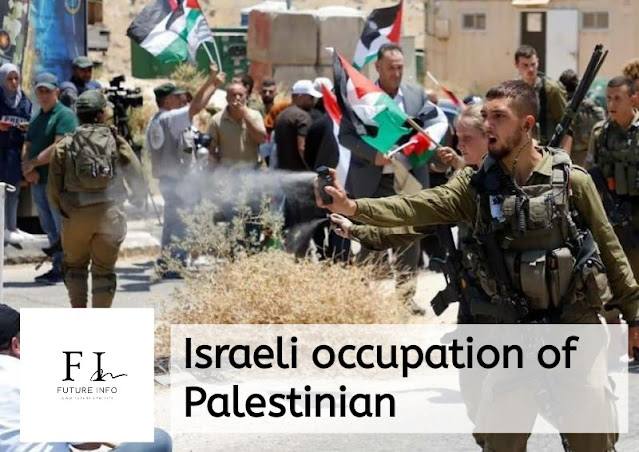NEW YORK - Continued Israeli occupation and discrimination against Palestinians are the main causes of recurring tensions, instability and conflict in the region, according to the latest United Nations report.
The United Nations' new independent international commission of inquiry into the occupied Palestinian territories, including East Jerusalem and Israel, released its first report on Tuesday.
The committee also noted that the exemption was fueling growing resentment among the Palestinian people. It identified forced migration, the risks of forced migration, demolitions, settlement construction and expansion, settler violence, and the blockade of Gaza as frequent causes of violence.
Committee Chair Navanitham Blye said, "Most of the findings and recommendations on root causes were directed at Israel, which we considered indicative of the disproportionate nature of the conflict and the fact that one country was occupying another. It is." He said.
The commission released its 18-page report after reviewing recommendations from previous commissions of inquiry and fact-finding missions, as well as other UN mechanisms and hearings.
The Committee conducted two missions to Geneva and one to Jordan and consulted with various stakeholders, including Israeli and Palestinian civil society organizations.
"We also found that these recommendations were largely unimplemented, including Israel's violation of international human rights law and international human rights law and the indiscriminate firing of rockets by Palestinian armed groups into Israel. The demands include ensuring accountability for indiscriminate shooting, a lack of implementation in which there is a sense of exception, clear evidence that Israel has no intention of ending the occupation, and ongoing hostility against Palestinians. Discrimination is at the core of the recurring systematic violations in both the occupied Palestinian territories, including East Jerusalem, and Israel.”
In its report, the Commission focused on findings and recommendations directly related to the root causes of recurrent tensions, instability and escalation of conflict. In his assessment, the main recommendations were not implemented and are the focus of controversy. The commission identified a number of key issues largely based on the recommendations, including Israel's failure to respect the laws and customs of war, including the occupation of war, violations and abuses of individual and collective rights, and a lack of accountability.
"Our review of the findings and recommendations of previous United Nations mechanisms and institutions clearly indicates that ending the Israeli occupation, in accordance with Security Council resolutions, is necessary to end the ongoing violence." Only with the end of the occupation can the world, Commissioner Malone Kothari noted, "begin to reverse historical grievances and move towards the right of the Palestinian people to self-determination."
Commissioner Chris Sidoti added: "Israel has no clear intention to end the occupation. In fact, it has put in place clear policies to ensure full and permanent control over the occupied Palestinian territories. This includes changing the proportion of the population in these areas by maintaining an environment conducive to Israeli settlers, which fosters conflict."
The report also notes that the Palestinian Authority often uses the occupation as a justification for its human rights violations and as a main reason for its failure to legislate and hold presidential elections. At the same time, the de facto authorities in Gaza have shown little commitment to upholding human rights, and have not complied with international humanitarian law.
The report, which will be presented at the 50th session of the Human Rights Council on June 13, 2022, concludes by saying that the commission will investigate and legally analyze the alleged violations and abuses, and ensure judicial accountability of the individual. Action. and accountability of the state and companies. It will also examine the responsibilities of third states and private actors in the continuing policies of occupation.



Post a Comment
Leave Your Reviews or Enter your Message for Post.